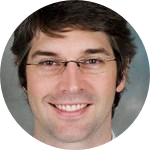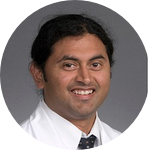About This Project
The burden of the functional impairments in stroke survivors remains unacceptably high. Sleep apnea, a common disorder of breathing during sleep, worsens stroke recovery. Our research is aimed at improving use of CPAP, a device worn on the face that keeps the upper airways open, and showing that CPAP therapy improves stroke recovery. Improving use of CPAP by stroke patients has the potential to offer a non-invasive, relatively low-cost treatment for such a common, disabling disease as stroke.
Ask the Scientists
Join The DiscussionWhat is the context of this research?
Obstructive sleep apnea (OSA) is increasingly recognized as a risk factor for stroke and a predictor of poor functional outcome after stroke, increasing the length of hospitalization and the likelihood of dependency and mortality http://stroke.ahajournals.org/content/43/11/3118.long. Yet few stroke survivors undergo testing or treatment for OSA, partly related to the lack of awareness among clinical providers. We seek to assess if early inpatient screening for OSA and a structured patient-centered program of early interventions to improve CPAP tolerance will result in improved long-term CPAP adherence and enhanced stroke recovery. We believe that our interventions to improve CPAP use will allow us to realize the potential benefits of CPAP on improved stroke recovery.
What is the significance of this project?
Stroke is the leading cause of disability in the United States. Treating OSA with CPAP may reduce the burden of stroke, a disease with few proven treatments to improve functional recovery. However, many patients have difficulty using CPAP, especially patients with stroke. Our research is aimed at finding ways to improve use of CPAP by stroke patients with OSA. Current stroke treatments are focused on acute interventions and, as a result, are offered to only a small subset of the overall stroke population. The proposed study will be an essential step in assessing the effectiveness of the routine use of CPAP among stroke survivors to improve functional recovery, which would have implications for stroke and rehabilitation programs nationwide.
What are the goals of the project?
We are studying methods to increase the use of CPAP by stroke patients. For instance, we will utilize an intensive adherence protocol among stroke patients with OSA. Nurses, respiratory therapists, and sleep medicine technologists during rehabilitation will provide education regarding OSA and stroke recovery, adjustments to the machine and masks and encouragement to reach a goal of 4 or more hours a night of CPAP use. Our main target is that the patient-centered intensive CPAP adherence protocol that is initiated during inpatient rehabilitation will lead to continued CPAP tolerance and nightly use upon discharge from the rehabilitation unit as well as an improvement in stroke recovery and patient-reported stroke outcomes after 3 months of use.
Budget
The funds raised through "Experiment" will be part of a larger funded project (through American Sleep Medicine Foundation pilot grant support) and will allow for completion of the larger project.
Research Study Coordinator (2% effort) will be responsible for the day-to-day conduct of the study, including submission of regulatory documents, patient recruitment, patient consent and data collection.
Sleep Medicine Research technologist (5% effort) will be responsible for initial CPAP introduction for exposure to CPAP prior to initiation, mask and machine adjustments and for daily monitoring of patients throughout their rehabilitation stay for CPAP adherence. The sleep technologist will provide patient education and encouragement to improve CPAP adherence with a goal of at least 4 hours of use per night.
Endorsed by
Meet the Team
Team Bio
Our team is unique in that it combines expertise from multiple specialties including vascular neurology (stroke), pulmonary, sleep medicine, rehabilitation medicine, respiratory therapy and clinical psychology. We believe that the multidisciplinary approach to our research project will better allow us to meet our study aims.
Sandeep Khot
I am a clinical Neurohospitalist with board-certification in Vascular Neurology and Director of the Neurology Inpatient Consult Service at Harborview Medical Center, the county hospital affiliated with the University of Washington. I have a longstanding interest in vascular neurology (stroke). Given observations in the clinical setting, I have developed a specific interest in the role of early diagnosis and treatment of obstructive sleep apnea after stroke. I served as the Primary Investigator for the Stroke and CPAP Outcome Study (SCOUTS), a randomized trial of continuous positive airway pressure in patients undergoing intensive inpatient rehabilitation after acute stroke. We have recently received funding through the American Sleep Medicine Foundation for a study on both early recognition and treatment of OSA and improving CPAP adherence among stroke rehabilitation patients. We believe this study will improve the awareness of the overlap between sleep disorders and stroke as well as improve access to care for sleep disorders.
Lab Notes
Nothing posted yet.
Project Backers
- 5Backers
- 9%Funded
- $414Total Donations
- $82.80Average Donation


